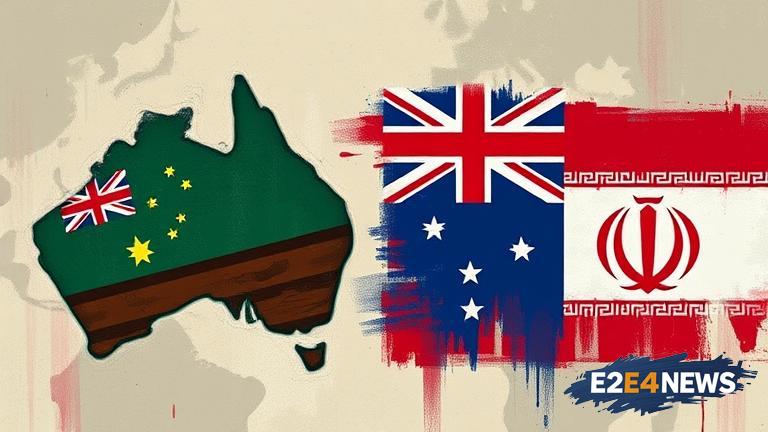In a significant escalation of diplomatic tensions, Australia has directly blamed Iran for its alleged role in two antisemitic attacks that occurred on its soil. The Australian government, in a strong statement, condemned these acts as unacceptable and vowed to take decisive action, including the potential expulsion of the Iranian envoy from the country. This move comes as part of a broader effort by Australia to combat antisemitism and ensure the safety and security of its Jewish community. The incidents in question have been described as particularly disturbing, involving threats and vandalism targeting Jewish institutions and individuals. The Australian government has made it clear that such acts will not be tolerated and that it will pursue all available avenues to hold those responsible accountable. The decision to possibly expel the Iranian diplomat is seen as a significant step, reflecting the seriousness with which Australia views these incidents. It also underscores the country’s commitment to upholding the principles of tolerance and respect for all religious and ethnic groups. The international community has been watching the situation closely, with many nations expressing solidarity with Australia in its stance against antisemitism. Iran, however, has denied any involvement in the attacks, describing the allegations as baseless and politically motivated. Despite these denials, Australia remains resolute in its position, citing evidence and intelligence that it believes links Iran to the incidents. The potential expulsion of the Iranian envoy would mark a new low in relations between the two countries, which have been strained over various issues, including human rights and regional security concerns. Australia’s Jewish community has welcomed the government’s firm stance, expressing gratitude for the commitment to their safety and well-being. The incidents have also sparked a wider debate about antisemitism in Australia, with calls for increased vigilance and education to combat prejudice. In response to the attacks, community leaders and politicians have come together to condemn antisemitism in all its forms, emphasizing the importance of unity and solidarity. The government has also announced plans to increase security measures at Jewish institutions and to enhance programs aimed at promoting tolerance and understanding. Meanwhile, Iran’s diplomatic missions around the world have been the subject of protests and condemnations, with demonstrators calling for an end to what they describe as Iran’s support for antisemitic activities. The situation remains volatile, with the potential for further escalation if Iran does not address the concerns raised by Australia and the international community. In the face of these challenges, Australia’s resolve to combat antisemitism and to stand by its Jewish community has been unwavering. The country’s leadership has been praised for its courage and principle in confronting these difficult issues head-on. As the situation continues to unfold, the world watches with interest, hoping for a resolution that promotes peace, understanding, and respect for all. The Australian government’s actions are seen as a model for other countries to follow in their own efforts to combat hate and intolerance. Ultimately, the goal is to create a society where everyone can live without fear of persecution or discrimination, a principle that Australia is committed to upholding. The path forward will require continued vigilance and cooperation, both domestically and internationally, to ensure that the scourge of antisemitism is effectively combated.
